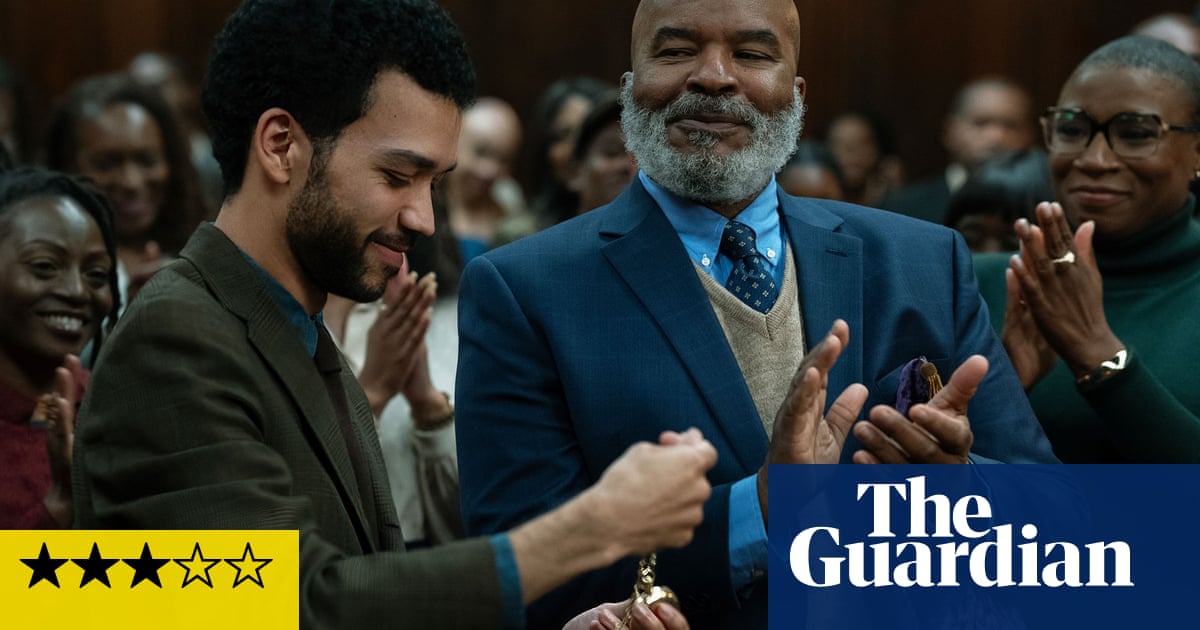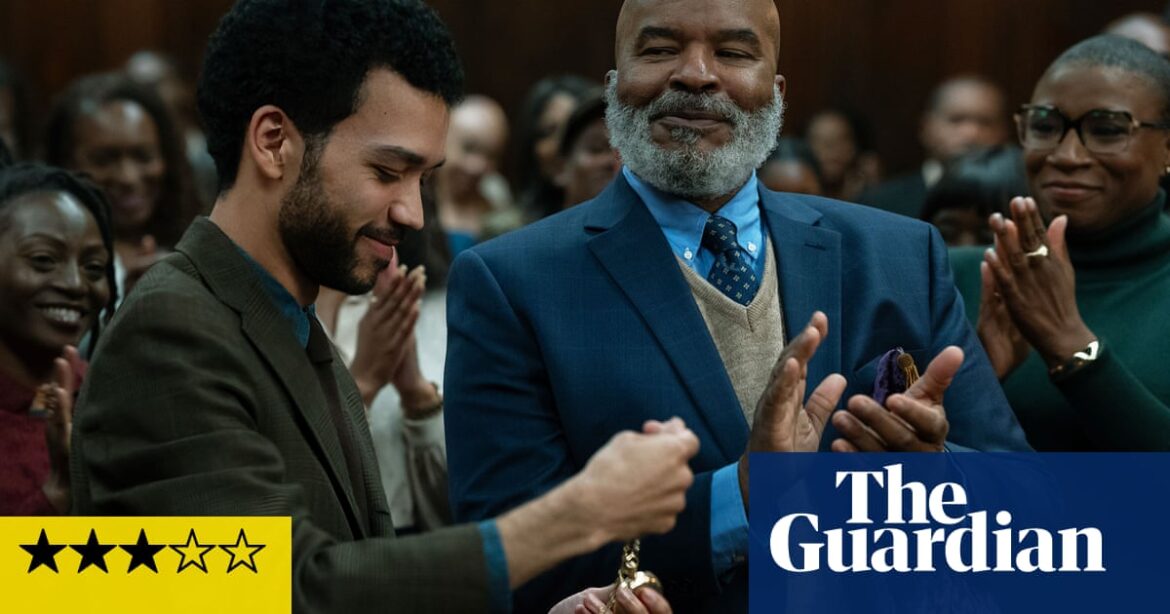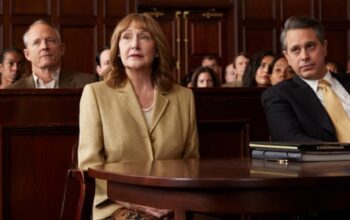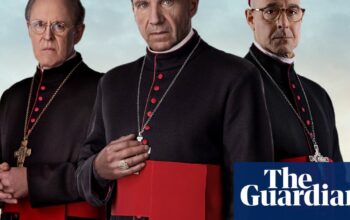
Make no mistake: The American Society of Magical Negroes, the debut film from the writer-director Kobi Libii, is trying to be provocative. It’s openly prodding the idea of comfort in text and in title, which cites the term popularized by Spike Lee for the Hollywood trope of saintly, lone Black characters who exist to assist the white protagonist’s journey without any interiority of their own. Libii is taking a big, ambitious satirical swing by literalizing that into an actual secret society in which magic-equipped Black people provide “client services” to upset white people in the name of safety. The trailer, which would lead one to believe that a Harry Potter-type boy wonder finds love while relieving white discomfort, predictably inflamed the Fox News crowd and drew heated skepticism and fatigue on social media.
Some wariness is fair, given that the race satire is a tricky art to pull off, and that cracks at the type of 2020-ish corporate micro-aggressions and mealy-mouthed contrition are a quickly tiresome cliche unto itself. But I’m pleased to report that the actual film, which premiered at the Sundance film festival, is sharper and less saccharine than the trailer would suggest, if uneven and plagued by the same issues of characterization it derides. I was not surprised to the learn that Libii initially intended the idea of real society of white guilt-assuaging Black people to be a short; the feature has the unwieldy feel of a sleek, small comedy vehicle tricked out with a bunch of eye-catching gags to fill space.
The initial idea, though, has legs. Aron Mbondo, charmingly played by Justice Smith, is a struggling artist in LA. He’s an emasculated figure – unconfident in his unsold yarn sculptures and obsequiously deferential to white people, for Reasons. It’s not that he’s uncomfortable around them, he claims – his mother is white and he grew up around them, one of maybe two biographical facts we learn about him. (The other is that he went to the Rhode Island School of Design, a prestigious east coast art school.) But he’s so deeply internalized the widespread devaluing of Black lives that it manifests as personal timidity.
This conceit is dialed up a bit too high in the set-up, Aron too weak to dispute a potential art buyer’s assumption that he’s waitstaff. But things start cooking after a kindly server named Roger (David Alan Grier) notices his penchant for deference and whisks him away to headquarters for, yes, the American Society of Magical Negroes, a centuries-old secret society that provides “client services” to white people – kindness, consideration, hackneyed wisdom, references to their wise Black grandmother – to keep Black people safe. “We are the vanguard of white relaxation,” Roger tells Aron, noting that provocation, anger, disappointment or distress precede a backlash. “The happier they are, the safer we are.”
The introductory scenes in the society’s wood-paneled and whiskey-filled halls are the film’s funniest and sleekest racial satire, in part because it’s entertaining to watch Libii’s visually impressive send-up of fantasy franchises’ fairy dust and fancy quills. (Harry Potter being, of course, the obvious reference.) The headmaster (Aisha Hinds) invokes clear jabs at the magical Negro trope in past lauded Hollywood films – The Legend of Bagger Vance, The Green Mile, Driving Miss Daisy and, more recently, Where the Crawdad Sings – to instruct trainees in the art of self-effacing behavior that falls within the slim overlap between “authentically Black” and “acceptable to whites”. The president (Nicole Byer) explains the rules: always put your client first, lest the whole society lose its powers; failure results in a memory wipe.
If you accept the terms of this satire – admittedly a steep buy-in, though Libii’s direction is breezy enough to keep things afloat – then Aron’s subsequent client work at a mock social media company called MeetBox has some rewards, namely sweet (if tonally jarring) chemistry between Aron and his coworker Lizzie (An-Li Bogan). Unfortunately for Aron, Lizzie has caught the eye of his client Jason, a prototypical white tech bro played by Drew Tarver, of the recently departed Max series The Other Two, whose absurdist digs at the entertainment industry are of a similar bent to Libii’s work here.
At its best, the film skewers the potentially eye-rolling concept of white fragility with visual panache and wit. I’m loathe to compare the two, but it feels bolder than the critical darling American Fiction, which tried to meld outdated literary satire (it mainly riffs on the novel Push, released in 1996) with sensitive family drama, not quite landing either. Still, the further you go, the flimsier things become. Aron’s lack of confidence and refusal to take up space, for one, starts to feel as much personal problem as a societal one. Or, more distinctly, a failure of characterization – he has no prior political consciousness, no history, no friends and, pointedly, no Black friends.
This was always going to be a difficult flight of fancy to land, and Libii can’t – the final act devolves into an earnest manifesto that feels ripped from an Instagram live. Such is the risk with betting on a bold statement. In the end, it’s neither the bogeyman the internet would like it to be nor the crisp provocateur it seems to want to be.
-
The American Society of Magical Negroes screened at the Sundance film festival; it is in US cinemas on 15 March and in UK cinemas on 26 April.
Source: theguardian.com



